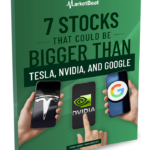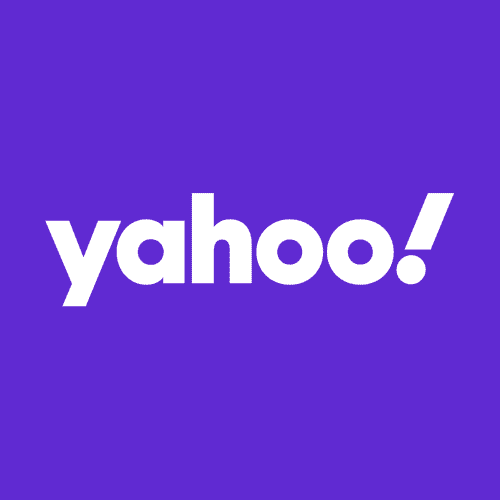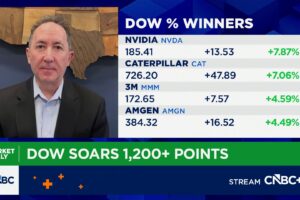
(Bloomberg) — Google’s response to a European Union order to give rival search apps a foothold on its Android phones may fail to steer users to alternatives, warned U.S. upstart DuckDuckGo, the only competitor to win the right to appear as another search option on new handsets across Europe.
Google has to prompt users to pick alternative search and web browser apps under the terms of a 2018 EU antitrust ruling that found the company unfairly ties moneymaking services to the Android software it gives away.
It chose to set up an auction format for smaller rivals where they will pay to appear as a one of three non-Google options on the choice screen across Europe from March to June.
But the user experience of the screens “is designed in a way that is subconsciously influencing people to use Google more than they otherwise should or would like to,” Gabriel Weinberg, chief executive officer of DuckDuckGo, a U.S. search engine that says it doesn’t track users, said in a phone interview.
“Ultimately it will not be effective if it remains like that, if only because the auction format will push out a private option and that is the number one thing besides Google that people want to select,” he said.
Non-Google Options
The auction will be re-run every three months. DuckDuckGo and Google are the only search apps that will appear on the choice screens in 31 countries in the region.
Users trying to set up their phones will be shown a choice of four search engines, without much explanation of the apps or the possibility to change their choice later, DuckDuckGo said in a separate blog post on Tuesday.
By passing up other ways of designing the prompts that could draw users to non-Google options, DuckDuckGo said Google is potentially undermining the EU order’s aim to widen alternatives to its apps.
Google declined to comment, referring to a detailed January blog post where it said the “choice screen design was developed in consultation with the European Commission.”
The commission’s press office said regulators “will continue monitoring closely the implementation of the choice screen mechanism” which comes after discussions with Google and feedback from other companies “in particular in relation to the presentation and mechanics of the choice screen and to the selection mechanism of rival search providers.”
Choice Screen
“As regards DuckDuckGo, as a result of the choice screen mechanism, they will be on every new Android device in the European Economic Area, and it will be for consumers to choose which search engine to install and use,“ the EU said in an emailed statement. The EU’s Android decision also allows rival search engines to be exclusively pre-installed on phone and tablets which “was not possible before.”
Google said it was possible to pre-install other search providers prior to the EU ruling. The company is separately challenging the EU decision on Android at the bloc’s second-highest court. The same court will hold a three-day hearing in February on Google’s appeal to an earlier antitrust decision on its search service.
Weinberg said DuckDuckGo has discussed its concerns with the European Commission.
Margrethe Vestager, the EU’s competition commissioner, told reporters on Monday that she’s “very very closely” following Google’s efforts to comply with the order. She said she’s aware of the detail of the design, adding that officials were “doubting if people would use unlimited scroll” to show a large number of alternatives.
Prices rivals must pay Google to appear on the screen “came down quite dramatically in the latest auction,” she said.
The EU has never formally signed off on how Google opted to comply with the order, leaving it uncertain whether the company has done enough to avoid more fines. Regulators could seek further changes to the choice screen from Google if necessary.
Google’s Chrome browser partly owes its own initial surge in popularity to choice screens that Microsoft Corp. agreed to show under EU pressure to offer people an alternative to the browser it loaded on to new personal computers with its Windows software.
Microsoft’s screen “wasn’t limited in choice and had 12 different browsers” and “most or all of the elements that we are suggesting here,” Weinberg said.
(Updates with Google comment in 12th paragraph.)
–With assistance from Natalia Drozdiak.
To contact the reporter on this story: Aoife White in Brussels at [email protected]
To contact the editors responsible for this story: Peter Chapman at [email protected], Nate Lanxon
<p class="canvas-atom canvas-text Mb(1.0em) Mb(0)–sm Mt(0.8em)–sm" type="text" content="For more articles like this, please visit us at bloomberg.com” data-reactid=”35″>For more articles like this, please visit us at bloomberg.com
<p class="canvas-atom canvas-text Mb(1.0em) Mb(0)–sm Mt(0.8em)–sm" type="text" content="Subscribe now to stay ahead with the most trusted business news source.” data-reactid=”36″>Subscribe now to stay ahead with the most trusted business news source.
©2020 Bloomberg L.P.











